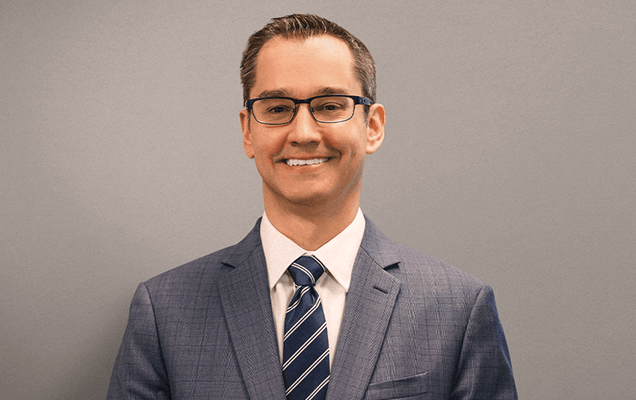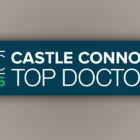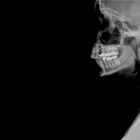If you have a neck issue that’s been holding you back from an active lifestyle, you and your doctor may determine that anterior cervical discectomy and fusion (ACDF) surgery might be the right solution. While this type of surgery is often highly effective, it can come with a lot of questions. One of the most common and important questions is, how long does neck fusion surgery take?
What follows is an overview of ACDF neck fusion surgery. You will discover information about ACDF surgery time, as well as some pre-op and post-op recommendations that may help you feel more comfortable about your procedure and getting back to full strength as quickly as possible.
What Is ACDF Neck Fusion Surgery?
ACDF is a common surgical procedure aimed at relieving spinal cord or nerve root pressure in the cervical spine by removing a damaged disc and fusing the adjacent vertebrae. It’s typically used to treat a herniated or degenerated disc, which is often the cause of a patient’s neck or back pain. When a disc herniates or degenerates, it can put pressure on nearby spinal nerves and cause discomfort. To relieve the pressure, the surgeon will perform a discectomy, which involves removing the problematic disc tissue. This can reduce the spine’s stability, however, so the surgeon will also insert a piece of bone or synthetic implant in place of the disc to keep the spine structurally sound.
Many neck fusion surgeries involve just one vertebral segment and therefore just one bone graft, but it can vary. If your surgeon has determined that there are several problematic discs, he or she may decide to treat multiple levels in the same operation. By talking with your surgeon, you can get a clear idea of your condition and how they intend to treat it.
Factors That Affect ACDF Surgery Duration
ACDF surgery length can be anywhere from an hour to several hours, depending on a range of factors. Here are some of the most important factors that will provide insight on the question, how long does neck fusion surgery last?
Number of Fusions
More severe conditions usually demand lengthier procedures. As previously mentioned, your surgeon may find that more than one of your spine segments needs to be fused. Each additional discectomy and fusion adds more time to the overall duration of the procedure. Knowing ahead of time how many spinal segments must be fused will help you better understand how long the operation will take.
Another important factor when asking how long does ACDF fusion take, is your surgeon’s experience and approach. At Neurosurgeons of New Jersey, our specialists bring academic expertise to a private practice setting, allowing for personalized surgical planning that considers each patient’s unique needs. While some surgeons prefer to work alone rather than with a team, which may increase the duration of the procedure, our collaborative approach ensures optimal efficiency without compromising care quality. The best way to understand your surgical plan—and to resolve any doubts you may have—is to speak with our team directly.
It's time to get back
to doing what you love.
ACDF Surgery Steps
We’ll spare you the technical jargon about each incision and suture, but understanding the main steps of ACDF surgery can help put your mind at ease. Here’s a high-level overview of what happens in the operating room.
- Anesthesia administration
- Surgical incision and approach
- Disc removal (discectomy)
- Preparation of the disc space
- Placement of bone graft or spacer
- Stabilization with hardware
- Closing the incision
- Postoperative monitoring
Pre-op and Post-op Considerations
Although your ACDF surgery experience may seem out of your control, there’s actually a great deal you can do to raise your chances of a fast, efficient, and successful procedure. Here are some active steps you can take to improve your outcome.
Pre-Op
Before your surgery, pay special attention to your surgeon’s pre-operation instructions. These may include medications you should avoid, as well as recommended eating and drinking habits. These instructions help ensure you’re in the best possible condition before the operation. If you smoke, your surgeon will recommend that you quit as soon as possible. Quitting will benefit your health in countless ways, but the primary concern with smoking and fusion surgery is that the chemicals inhibit your body’s bone healing and threaten the success of your surgery.
Post-Op
The operation itself may last just a few hours, but the spinal fusion journey can take months. In fact, the outcome of a neck fusion surgery isn’t certain until the bones finish fusing. For this reason, your surgeon will advise you on when and how to return to activity. You’ll want to protect your fusing bones so they can heal properly.
Your overall health has a strong influence on this healing process. If you’re in good physical condition, your body will be more capable of healing the operated area and fusing the bone. This means practicing good health habits both before and after your operation will reduce its duration.
Schedule a Consultation with Our Team
When considering ACDF surgery, choosing the right surgical team is crucial for optimal outcomes. Our team at Neurosurgeons of New Jersey combines world-class training with community-based care, offering the expertise you’d expect from major academic centers with the personalized attention of a private practice.
Located just 10 minutes from New York City, we understand that starting your journey toward relief shouldn’t mean waiting weeks for an appointment. That’s why we offer same-day telehealth consultations to discuss whether ACDF surgery could be your path to a more comfortable, active life. Let’s have a conversation to start your journey.

About Dr. William S. Cobb
Dr. William Cobb is an accomplished neurosurgeon in North Jersey and a proud member of Neurosurgeons of New Jersey, practicing out of their Ridgewood office conveniently located on East Ridgewood Avenue. During his Neurological Surgery residency, he became passionate about the development and treatment of brain tumors affecting the brain and spine. Dr. Cobb uses state-of-the-art technology for surgical intervention in the treatment of tumors of the brain and spine including Gamma Knife radiosurgery. He has vast experience in using modern minimally invasive surgery for the treatment of degenerative spine and intervertebral disc disease. Dr. Cobb serves as the Director of Neurosurgical Oncology at Valley Hospital. He's accepting new patients.
Recent Posts:






